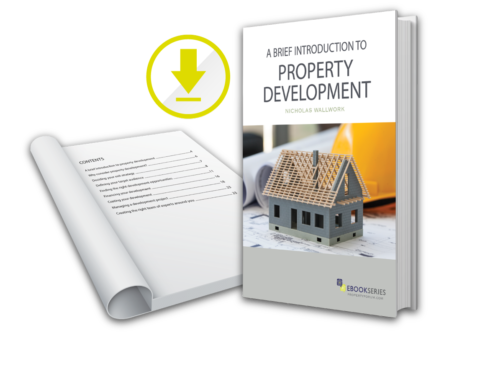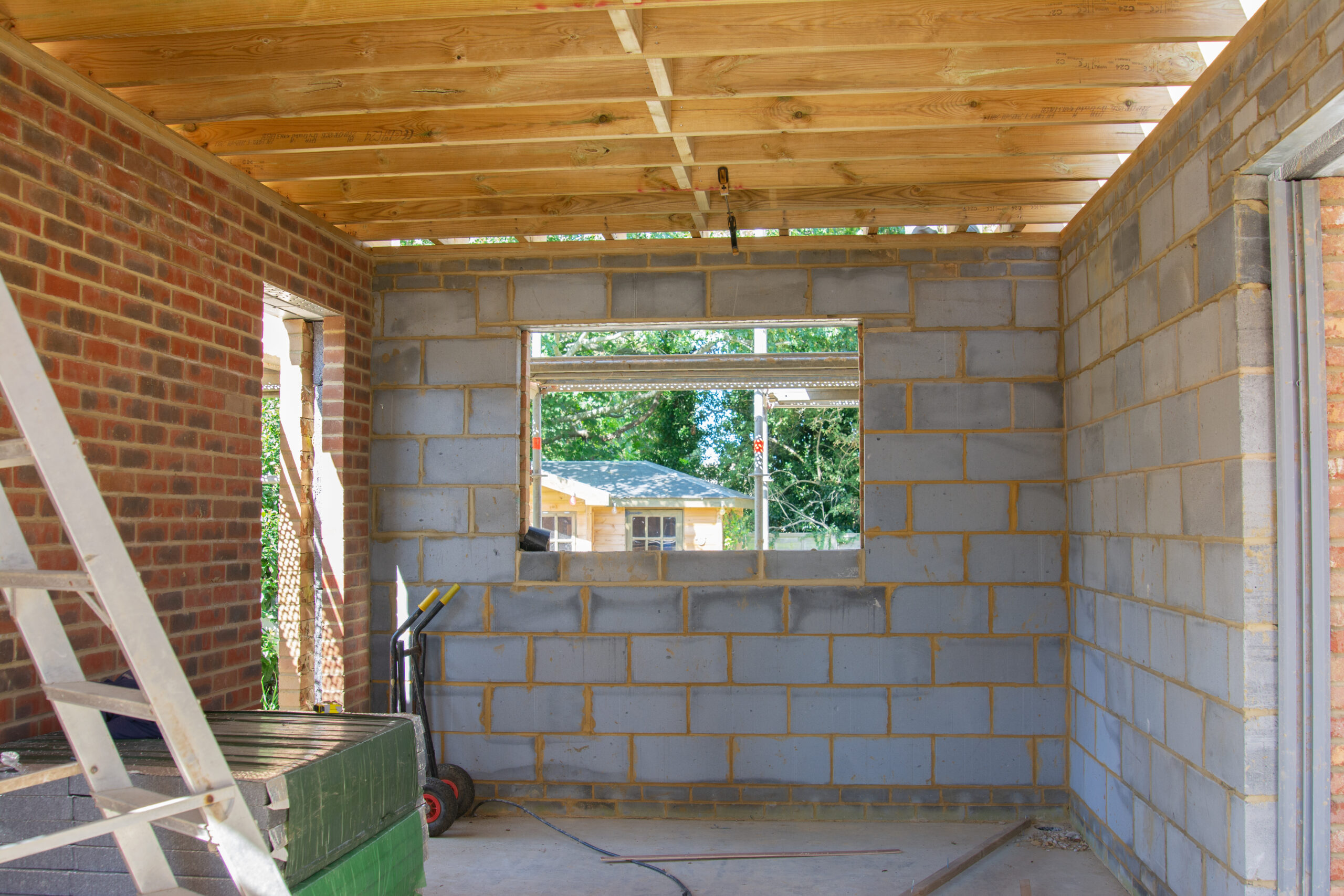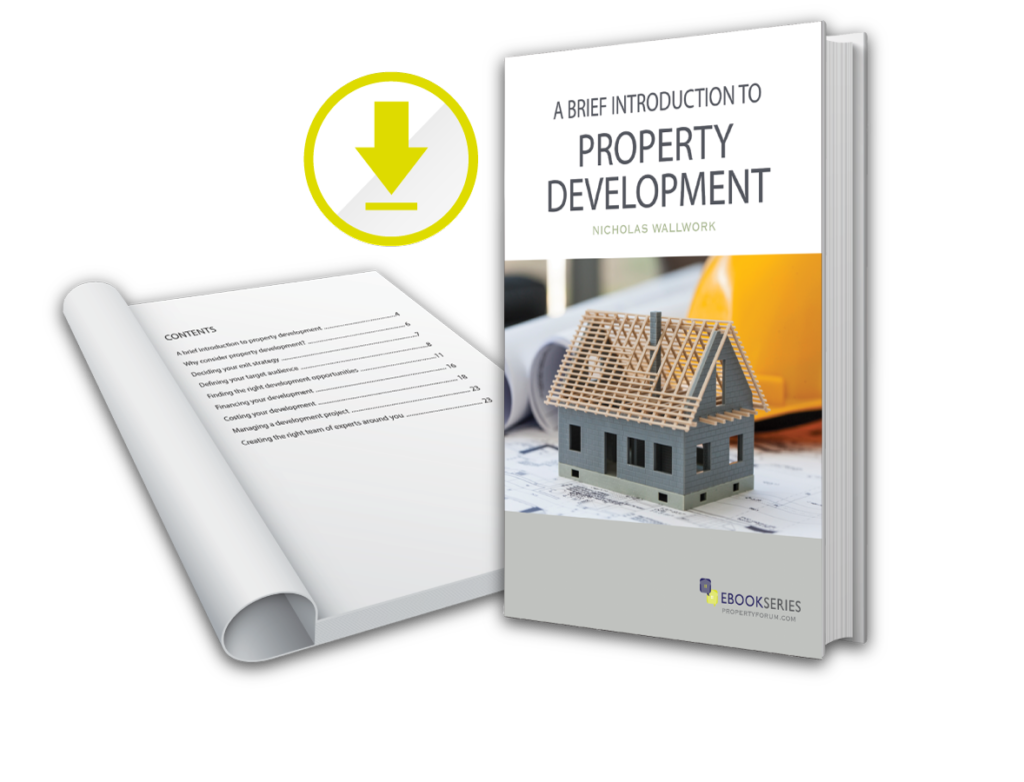
Learn about Property Development in our free ebook...
Property Development
This page offers an introduction to getting started in property development and includes links to all the free educational resources that we provide here on Property Forum. You can download our free ebook on property development at the top of this page, or scroll down to find helpful videos, news articles and even mentorship support to help you fast-track your property development success.
What exactly is property development?
Property development encompasses a wide range of activities, with options for both beginners and experienced developers. These can include;
- A straight forward ‘spruce up’ of a property (such as redecorating or adding new flooring).
- A complete renovation (which could include knocking down walls, adding an extension, converting a garage into an internal room, or adding a new bathroom or kitchen).
- Converting a house into flats.
- A complete build (buying a piece of land and building a single property or properties on it).
More advanced property developing can include changing the use of a property, such as converting a single occupancy house into an HMO (house in multiple occupation), or converting a commercial property (such as an office) into residential accommodation.
Whichever property development strategy you opt for, the key thing to remember before getting started is that your primary goal is to add value.
Focus on the end before you start: What’s your exit strategy?
Property development is all about developing to sell (to build capital), or developing to rent (to generate a longer-term income). Start by deciding what you intent to do with your property at the end of a project (sell or rent), and who will you be aiming your development at (your target audience). You must decide the answers to these questions at the outset.
The answer to which exit strategy is right for you, isn’t just a financial one. Consider your passions, your goals and your strengths as an investor. If the daily grind of managing properties and tenants doesn’t appeal to you (and you don’t want to work with an agent), then developing properties for sale is probably a better choice for your personally.
The very best property developers give themselves multiple exit options. You should still plan for one exit strategy and one target audience, but having a ‘Plan B’ in mind is highly valuable should any circumstances change or the market shifts unexpectantly. This gives you slightly more wriggle room incase you need it. An example ‘Plan B’ would be to retain a property and rent it out if you cannot sell it.
Deciding your target audience
Because property developing is a business, just like any other, a key to your success will be how well your property hits the mark with your target audience. A house aimed at student tenants will be developed very differently to one that’s going to be rented to professionals, or sold as a family home. Your choice on fixtures, fittings, appliances, décor and use of space will all be vital to your success. Offering an end product that’s too generic could miss the mark with your target audience.
Great questions to ask yourself (and local agents) when researching your target audience include:
- How many bedrooms, bathrooms and reception rooms will your audience expect / need?
- How big will these rooms need to be?
- What type and size of outside space will be expected?
- What’s the best location for your audience?
- What sort of sale or rental price can you expect in that location?


Finding development opportunities.
Finding great property development opportunities has without doubt become more competitive in recent decades. There are still great deals to be had, but you need to have all your ducks in a row to stand the best chance of securing a great deal before your competitor does. There are several things to consider which will help you be at the front of the pack…
- Expand your network: Hearing about a great deal coming onto the market first, is often about who you know. Make sure you have personally met all key local agents and property sourcers in the locations you are considering. Keep in touch with them regularly to stay at the forefront of their minds.
- Build a professional reputation: Word spreads quickly in the property industry (both good and bad), so it’s important to build a reputation that is professional and reliable. If you pull out of deals at the last minute, cancel appointments, and don’t return phone calls, you will quickly fall out of favour with agents and won’t be taken seriously.
- It’s also important to have a professional appearance as a development business. We recommend this includes a business card and website (even a simple one-page website will show you are taking your development business seriously). This is also essential if you are seeking financial backing from private investors.
- Be ready to move quickly: Make sure you have your finances in place so you can move quickly when you find a deal of interest.
Once you have done your prep, you need to decide on location. Buy a great property in the wrong location and it doesn’t matter how much value you add, you may struggle to achieve the sale or rental price you want. The perfect location should be dictated by your audience and their needs (along with your budget). You can start your property search with the following:
- Leading property portals (such as Rightmove and Zoopla. You wil also find websites such as Estates Gazette which are more targeted to the investment market and include commercial and auction property).
- Check out local auctions.
- Build relationships with local agents in the area.
- Go on LinkedIn and search for ‘Property Sourcer’ in your area of interest (be aware they will charge an ‘introducer’s fee’ for any deal you purchase through them).
- You could even leaflet drop or place ads in local papers of your desired location.

Look for property where you can add value.
When it comes to developing existing properties, the best opportunities to add value come from:
- Properties that aren’t quite right for the local demographic (eg. A large house in an urban area filled with young professionals. This might not appeal to a family but you have potential to turn it into an HMO).
- Unloved, poorly maintained properties, or those that have stood vacant for a while.
- Smaller properties that could be expanded to add another bedroom or living space (eg. A loft or garage conversion). You will need to bear in mind the ceiling price of houses on that road, and the likelihood of gaining planning permission.
- Properties that are dated but structurally sound.
- Properties with factors that don’t appeal to buyers and this limits their value (like a downstairs bathroom, or a dark kitchen).
- Properties where the layout could be reconfigured to better suit modern life. (Eg. Knocking down a wall to create a large open-plan living space for a family).
Property Development Articles & news...
eDUCATIONAL Videos...
VIDEO: 5 of the biggest names in property discuss how to prosper in challenging markets…
VIDEO: How to succeed with auctions, land and conversions during Covid-19…
HELPFUL SERVICES...


Property Development Articles & news...
Download our free property development ebooks now...


